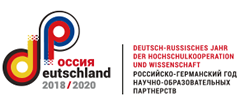Problem description
Reducing environmental and health problems related to transport has become a central future question in many cities worldwide. The complex problems of the urban transport and mobility system require a systemic change. In order to ensure changes in the entire system the cooperation of various actors is necessary. At the technical level, the goal could be to abandon the internal combustion engine, but at the social level, it would mean fostering a large-scale transformation of mobility patterns. On their way to a sustainable urban mobility system cities might also benefit from an exchange and mutual support. Developing their own pathways to transformation by considering local characteristics is one of the most important challenges that cities face.
Research goals
- Carrying out local system and actors' analysis to grasp the initial situation in the area of mobility and transport in Dresden.
- Implementation and reflexion of the transition management approach and setting up of a transformation arena.
- Testing and enhancing new formats in order to reduce the gap between knowledge and practice related to the sustainable design of urban mobility systems.
- Testing new ways for systemic transformation to sustainable urban mobility ("reality labs").
- Transnational exchange and knowledge transfer among the actors in the field of mobility from St. Petersburg and Dresden as well as identification of specific options for future cooperation.
Research questions of the project and hypothesis
How can the participative process be organized, which would support a systemic transformation to a sustainable urban mobility system?
What can the new governance approach "Transition Management" contribute in the context of a transformation of the mobility system in Dresden? What are the related strengths and weaknesses, opportunities and risks?
Methodology
The project builds on the transition management approach developed in the Nederlands (Loorbach 2010). It was designed to develop and initiate transformation processes towards sustainability. Thereby we follow a "Frontrunner und Follower" approach. As a German "Zukunftsstadt" (future city) and "Frontrunner" the city of Dresden will test an extensive transition management approach. The experiences gained will then be discussed and reflected based on a transnational exchange with actors from St. Petersburg ("Follower").
It is intended to reduce the gap between knowledge and practice related to the sustainable design of urban mobility systems by the use of new formats ("Transformation arena", "Backcasting").
REsults
The scientific support of the project has compiled current knowledge on the mobility and transport system as well as the relevant actor landscape in Dresden and St. Petersburg, and has made the existing transport, urban planning and transformation knowledge of these actors from science and practice visible. With the help of the process structuring, cooperations between mobility actors in both cities were initiated. The knowledge (content and process) developed in the project can serve as a basis for other cities in Germany, Russia and Europe to work on their own transformation paths.
The participatory process of the "Transformation Arena for Sustainable Urban Transport in Dresden" took place from January to December 2020 with participants from administration, civil society, business and science. The process and its results were documented by the IOER in three synthesis papers. Part 1 summarises the results of the joint system analysis, Part 2 presents the group's vision for sustainable urban transport in 2050, Part 3 reports on backcasting and links the future via transformation paths with experiments in the present.



![[Translate to English:] Leibniz Gemeinschaft](/fileadmin/user_upload/ioer_de/img/logo-leibniz-gemeinschaft.svg)
![[Translate to English:] Dresden concept](/fileadmin/_processed_/2/1/csm_logo-dresden-concept_430c661ad7.png)

